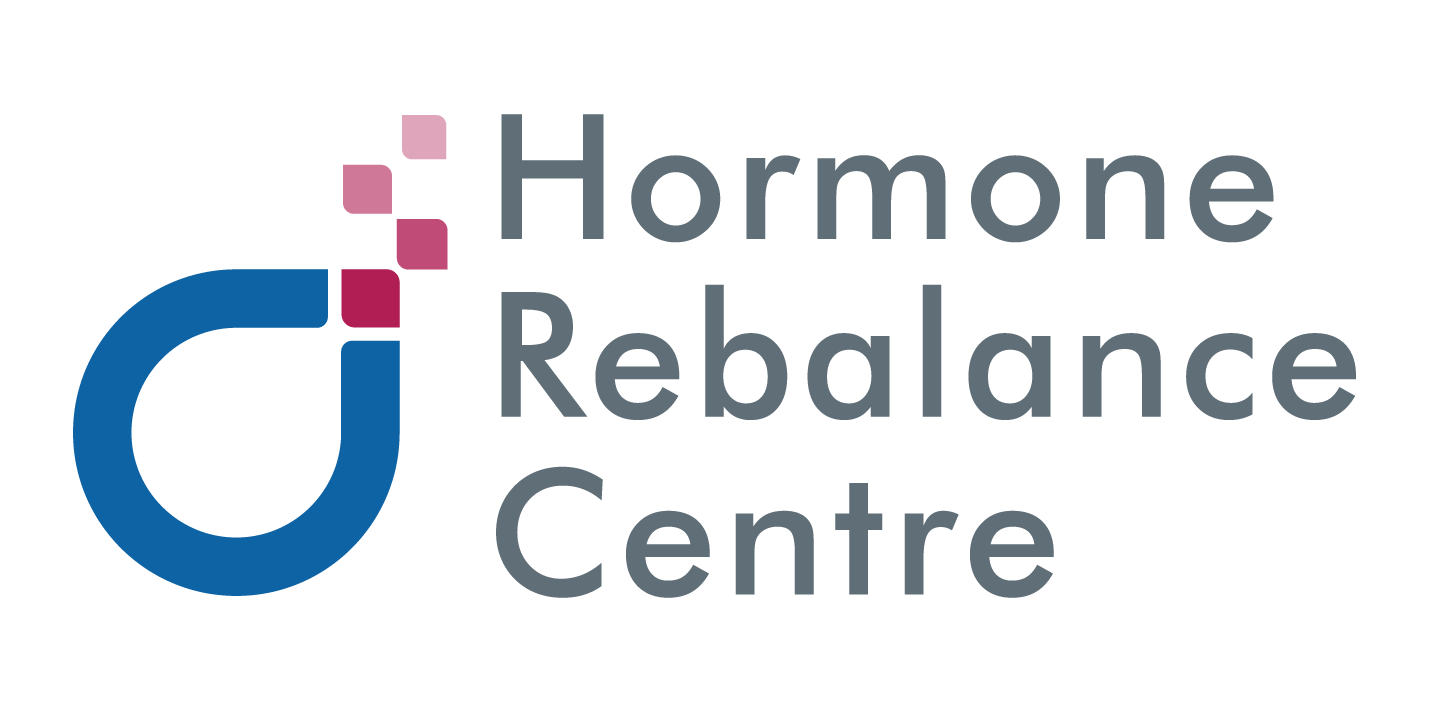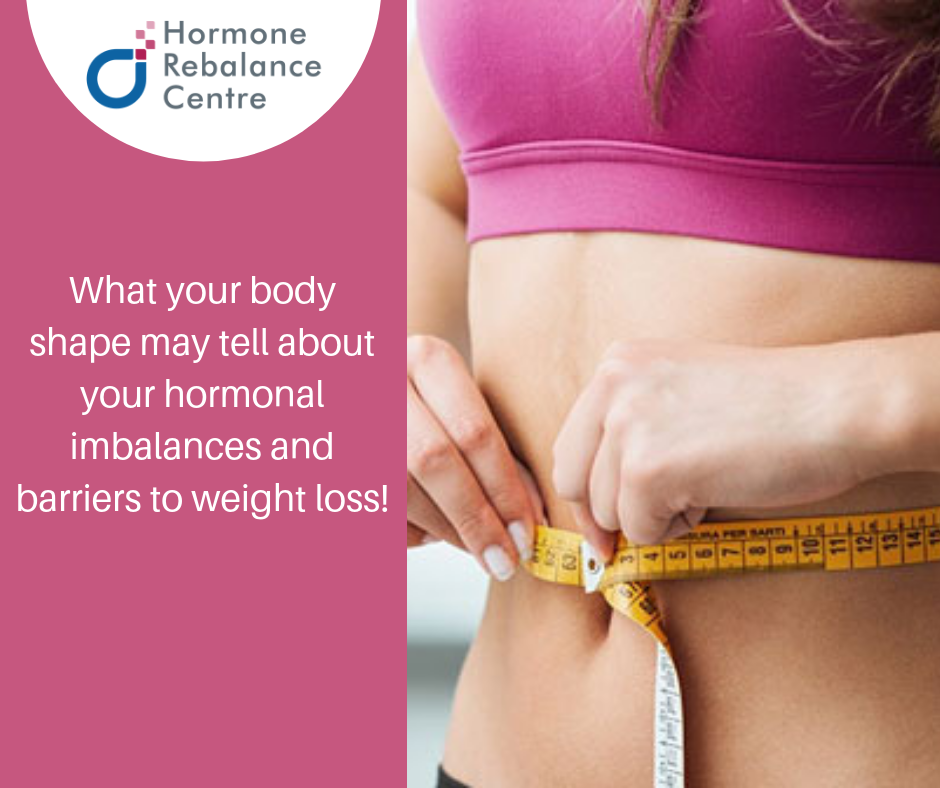Have you noticed a specific area in your body where you are more prone to holding excess weight and fat? One where it’s harder to lose from? Such as your abdomen, back fat, thighs, butt or simply all over?
Weight loss is a controversial topic because everyone has a different body type. What may work for a friend, family member or colleague of yours may not necessarily work for you. Exercising more and eating less may not get you as far as you had hoped, which is why it’s important to consider how hormonal imbalances play a role in all of this.
Women who first come to us are often at a loss of where to proceed with weight loss and feel as though they have tried everything.
However, when we get a clear understanding of their symptoms, their body shape, and uncover the hormonal imbalances that are working against them, then they are often able to get the most out of their diet and exercise efforts, lose weight, and best of all, improve their health on all levels!
In this post, we will discuss 3 main body shapes, what their underlying hormonal causes may be, what the associated symptoms are and some tips to tackling them so you can have an easier time addressing this stubborn weight.
#1: Predominant weight in the abdomen and back
Also known as “apple”, “round”, or “spare tire”
Causes: Cortisol and Insulin Imbalance
There are two hormones at the root of this body type: cortisol, our stress hormone which is produced by the adrenal glands during periods of physical, mental and emotional stress and insulin, which regulates our blood sugar levels.
The two hormones go hand in hand when one is out of balance, it directly impacts the other and the two signal the body to store visceral fat, around your vital organs in the mid-section. This leads to weight gain specifically in the front and sides of your abdomen, as well as the back. To learn in more detail about the cortisol hormone, read our latest blog!
Associated symptoms with this imbalance:
- Mid-section weight
- Back weight
- Buffalo hump (extra fat around the neck and upper back)
- Fatigue/lethargy
- Insomnia/sleeplessness and nighttime waking
- Nervousness/anxiety
- Salt or sugar cravings
- Inflammation in joints
- Overactive immune system
- Brain fog
- Low libido
- Pre-diabetes and diabetes
Tips to address these imbalances:
- Managing blood sugar levels is key, therefore a low carb, low glycemic diet will go along the way with supporting weight loss around the mid-section. Make sure that while you cut back on the carbs, you actually increase your intake of healthy fats and proteins to make sure you get lots of energy and train your body to be a fat burner instead of a carb burner!
Check out this blog post to get some ideas for low-carb breakfast options! - Although managing carb intake is key, you want to avoid starvation diets that are too calorie restrictive as well as excessive exercise. All these actually cause increases in cortisol in the long-term and slow down your metabolic rate!
- Practice stress-management techniques such as meditation, journaling, proper sleep habits, practice mindfulness, keep a gratitude journal, make time for self-pampering, take baths, etc
- Supplements to consider (be sure to speak to a practitioner about which one may be best for you!):
- Vitamin C, B-vitamins (especially B5)
- Minerals: zinc, chromium, magnesium
- Adaptogenic herbs which help balance stress hormones: licorice (avoid if high blood pressure), Rhodiola, Ashwagandha, ginseng, gingko If this is your body type, make sure to check out our latest blog post dedicated completely to cortisol and its contribution to weight gain!
#2: Predominant weight in the thighs and butt
Also known as “pear”, “inverted triangle”, “hourglass”
Causes: Estrogen Imbalance
Subcutaneous fat, which is fat under the skin, has estrogen receptors and hence it signals your body to store more estrogen. This fat is commonly seen in the thighs and butt, where you also notice more cellulite because the fat is closer to the surface (unlike visceral fat in the abdomen).
There are several causes that can contribute to estrogen imbalance such as high estrogen production from the ovaries, low progesterone, high exposure to synthetic estrogens (knows as xenoestrogens) from our diet, plastics, beauty products, or birth control pill, as well as poor detoxification and metabolism of hormones in the body.
Associated symptoms with this imbalance:
- Lower-body weight gain
- Menstrual cramps
- Heavy menstrual bleeding
- Ovarian cysts
- Cyclical mood swings
- Fibrocystic breast
- Cyclical acne
- Vaginal dryness
- Hot flashes/night sweats
- Fibroids/endometriosis
- Cyclical bloating
- Thyroid dysfunction
*Menopause may actually be a combination of estrogen and adrenal body types
Tips to address this imbalance:
One of the things we can control is exposure to xenoestrogens, which means avoiding the use of plastic containers where possible (ie. Tupperware, plastic water bottles)
- Support your liver detoxification pathways, which can help with hormone metabolism. Increase foods which contain sulfur: such raw garlic, onions, and cruciferous vegetables.
- Support your gut health. Bowel movements is one of the body’s ways to rid of excess hormones so if you are constipated or not as regular, these hormones can re-circulate back into your system. Increase consumption of insoluble fiber by eating more wheat bran, quinoa, brown rice, dark leafy green vegetables, amaranth, millet, nuts, and seeds.
- Supplements to consider (for a more detailed list read out latest blog on Estrogen Detox):
- Diindolylmethane (DIM)
- Indole-3-carbinol (I3C), both of which found in cruciferous vegetables
- Probiotic to populate gut bacteria with “good” bacteria
- Magnesium and B-vitamins, which help methylation and estrogen detox
It’s important to note that just because you may have cellulite or a propensity to gain weight in the thighs and butt, doesn’t automatically mean you have an estrogen problem. It’s always best to test your hormones, review your symptoms and put all the pieces together to best address your health concerns and goals.
#3: Weight gain all over!
Also known as “rectangle”
Causes: Thyroid Imbalance
There are thyroid receptors practically in all cells in the body, therefore thyroid dysregulation, will not only slow down your overall metabolism but will also lead to equal weight gain all over your body!
Other hormone imbalances, such as estrogen and cortisol, can impact the thyroid as well so you may find yourself not only gaining weight all over but also having extra weight in the middle or lower part of the body, in which case several imbalances must be addressed.
Associated symptoms with this imbalance:
- Generalized weight gain
- Fatigue/lethargy
- Cold hands/feet
- Thinning hair
- Thinning of hair in outer eyebrows
- Mental fog/poor memory
- Constipation
- Low body temperature
- Fibroids/endometriosis
- Weak, brittle nails
Tips to address this imbalance:
- Avoidance of excessive cardio training; this increases cortisol and lowers thyroid function for 24 hours post-workout. Instead focus on shorter duration, strength training workouts
- Avoidance of starvation/low-calorie diets. This decreases thyroid function in the long run and slows down your metabolic rate.
- Limit consumption of foods that slow thyroid function, including raw cruciferous vegetables, soy products, and peanuts
- Supplements to consider that are important for thyroid function:
- Iodine: Himalayan salt, kelp, seaweed/sea vegetables, iodoral
- Selenium: Brazil nuts, fish, sunflower seeds
- Zinc: red meat, poultry, pumpkin seeds, oysters, lentils
What are your next steps?
It is not uncommon to feel like you’ve tried everything under the sun for weight loss (ie. diet plans, supplements, exercise regimes), but none of them have truly made a lasting change.
Weight management is a complex and highly individualized process. Rather than blindly following the latest fads or your girlfriend’s diet plan, it’s important to pay attention to the clues your body leaves behind.
Where are you struggling to lose the weight from? What other symptoms are you experiencing? What underlying hormonal imbalance(s) are contributing to your struggles?
The best solution is always individualized. Combining your subjective symptoms with objective information about your hormones through proper testing, allows us to see a more complete picture of what is going on with our patients and create a customized plan for each woman we see. Weight loss should never be a cookie-cutter approach.
However, while comprehensive hormone testing, like the DUTCH test, will give you detailed answers about your potential hormonal imbalances, in the meantime, take our 3-minute Hormone Quiz and get a personalized report of what hormones are likely driving your symptoms and contributing to your weight!



No Comments